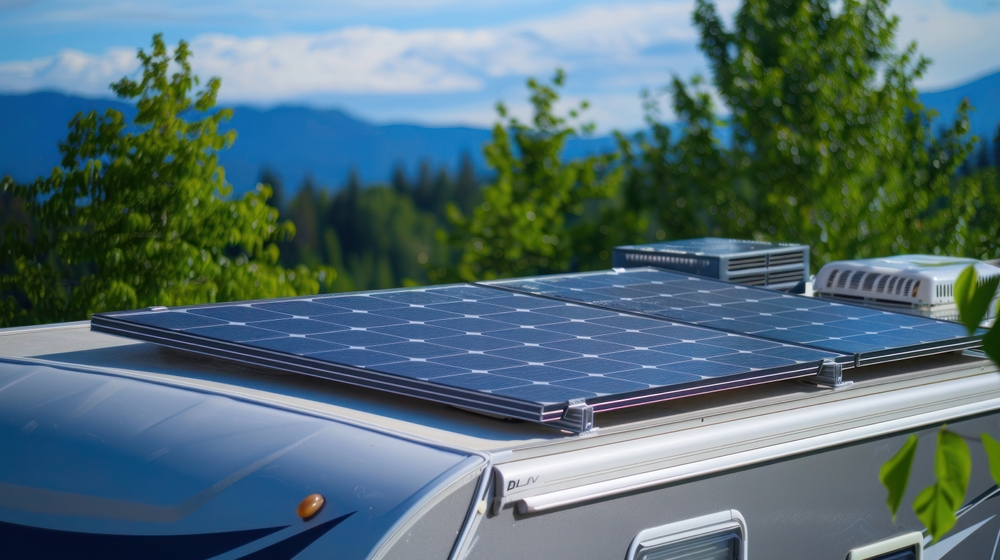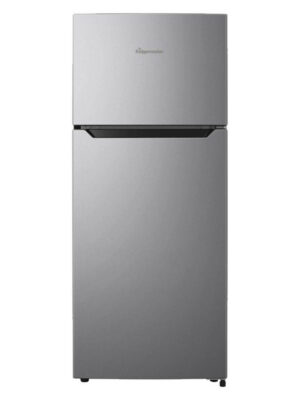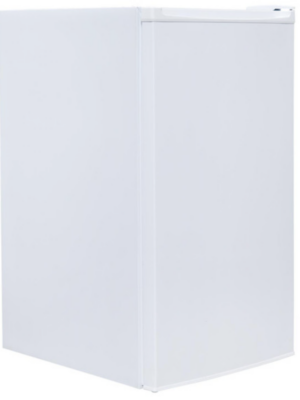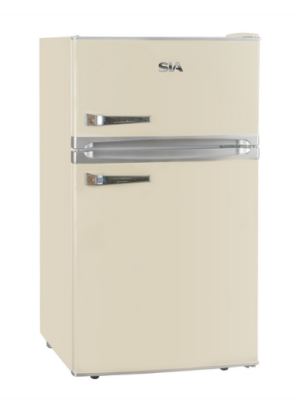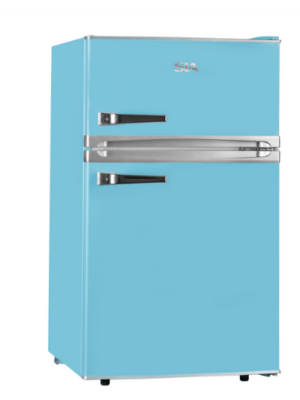There are many pros and cons of using a 12V fridge powered by solar energy. Using solar for appliances is gaining popularity among individuals pursuing off-grid experiences, energy independence, and environmentally friendly options. Whether you’re gearing up for a road trip in your caravan or seeking a dependable power source for outdoor activities, solar energy provides a sustainable way to keep your fridge operational. But how does it function, and what factors should you keep in mind?
Let’s explore everything you need to know about using solar power to run a 12V fridge.
Benefits of Using Solar Power for 12V Appliances
Solar panels have been around for years in an attempt to decrease reliance on fossil fuels. Despite the UK not getting much direct sunlight, there are still many benefits to incorporating panels into your home, whether stationary or on wheels. Switching to solar power for your 12V appliances comes with numerous advantages.
- Environmentally Friendly: Solar power reduces your carbon footprint by harnessing renewable energy from the sun, making it a cleaner alternative to fossil fuel-based solutions.
- Cost-Effective: After the initial setup cost, solar energy is free, helping you save on electricity or fuel expenses over the long term, even during extended off-grid trips.
- Reliable in Remote Locations: Solar power enables off-grid living or camping without relying on traditional power sources, making it perfect for remote locations with limited access to electricity.
- Quiet as a Mouse: Unlike generators, solar panels work silently, ensuring quiet during your outdoor adventures, particularly in serene natural settings or campsites.
- Low Maintenance: Solar systems are durable and require minimal maintenance compared to other energy solutions, ensuring they remain reliable and efficient over time with little effort.
Things to Consider When Using Solar for 12V Appliances
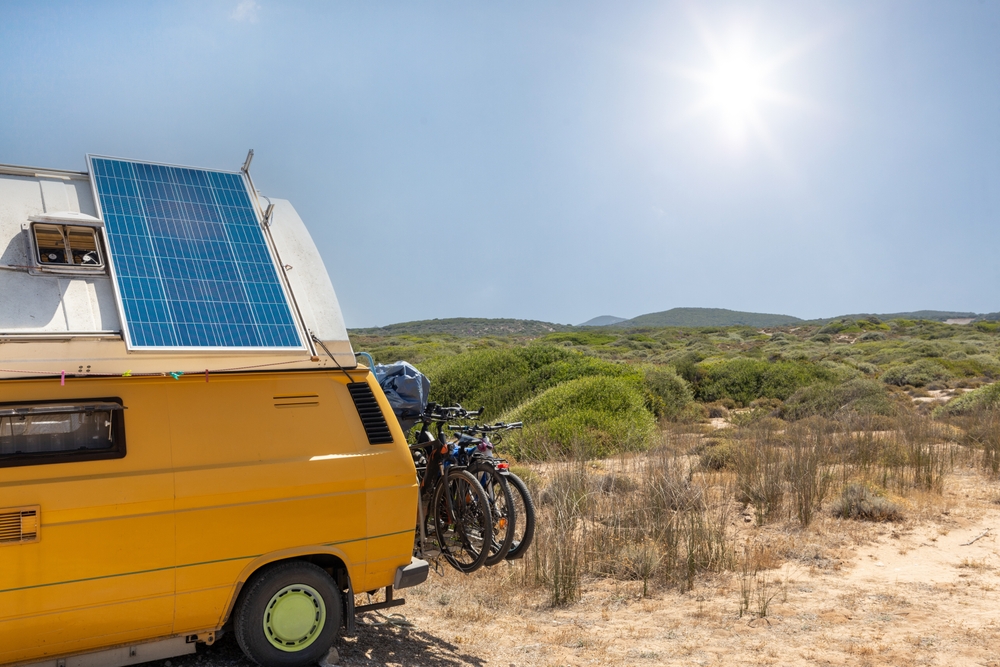
Before diving into a solar-powered setup, consider the following:
- Power Consumption: Understand the energy requirements of your appliances, especially the fridge. Check wattage ratings and estimated daily usage to ensure your system can meet your needs.
- Battery Capacity: Ensure your battery can store enough power to keep appliances running during cloudy or nighttime hours. Consider investing in high-quality deep-cycle batteries for reliable storage.
- Panel Efficiency: Choose high-efficiency solar panels to maximize energy generation in limited sunlight. Higher efficiency panels can help offset reduced output in less-than-ideal conditions.
- Climate Conditions: Consider how weather, such as overcast days, strong winds, or high temperatures, might affect your solar system’s performance. Positioning panels optimally can help mitigate these factors.
- Portability: If you’re on the move, portable solar panels and lightweight batteries can make your system more manageable and easier to set up in different environments.
How Much Solar Power Do You Need for a 12V Fridge?
On the surface, working out power expenditure can seem like a headscratcher. Thankfully, the process isn’t nearly as daunting as you’d think. To determine the solar power required, calculate your fridge’s daily energy consumption:
Check the Fridge’s Power Rating
This is typically displayed in watts (e.g., 40W). A 40W fridge running for 24 hours consumes approximately 960 watt-hours (Wh) per day. If your fridge cycles on and off, this figure might be lower, depending on the duty cycle. Units with an eco mode typically cycle on and off for maximum efficiency – but this could impact your produce during warmer weather.
Factor in Efficiency Losses
Include a 20% leeway for inefficiencies in your solar system, such as energy losses during charging, temperature effects, and inverter use. This increases the daily requirement to about 1,152 Wh to ensure consistent performance. Factoring in inefficiencies can make the road ahead as cool as you’d like (wattage and weather permitting).
Convert to Solar Panel Output
Divide the daily requirement by the average sunlight hours in your location. For example, with 5 hours of sunlight, you’ll need around 230W of solar panel capacity (1,152 Wh ÷ 5 hours = 230W). For areas with fewer sunlight hours, consider adding extra panels or increasing battery capacity to compensate.
It’s important to remember that seasonal changes and weather conditions can impact the amount of solar power required. By planning for variability, you can ensure your system operates efficiently throughout the year.
Essential Components for a Solar-Powered Fridge Setup
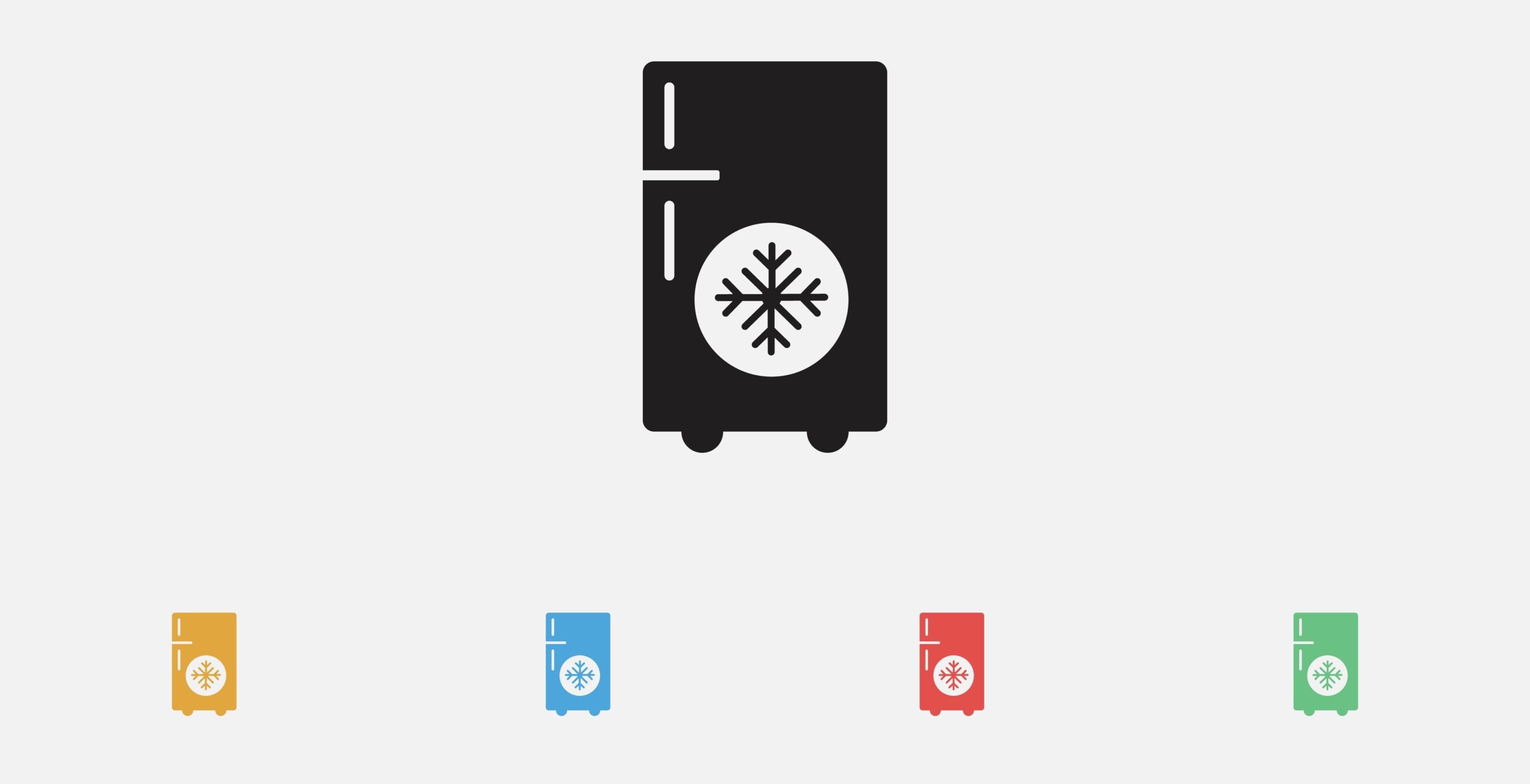
Solar Panels
Establishing a solar-powered system for your 12V fridge involves several essential components to ensure reliable and efficient performance. Solar panels serve as the main energy source, and you can select from rigid, flexible, or portable designs depending on your needs and available space.
Charge Controller
A charge controller protects your battery from overcharging and ensures efficient energy transfer from the solar panels. These devices help maintain battery health and optimise overall performance.
Battery
To store the captured energy, a deep-cycle battery is essential. It allows your fridge to operate when sunlight is unavailable, such as at night or on cloudy days, ensuring uninterrupted functionality.
Inverter
An inverter may be necessary if your fridge requires AC power. While most 12V fridges use DC, some models need an inverter to convert the battery’s DC output to AC. Selecting the right inverter is crucial to avoid inefficiencies.
Cables
Finally, durable cables and connectors create secure, efficient connections between components. High-quality wiring ensures your system works seamlessly and safely in different conditions, whether stationary or mobile.
By carefully choosing and planning components, you can build a solar-powered setup that’s reliable and long-lasting, letting you enjoy the benefits of off-grid living with ease.
Tips for Maximising Solar Efficiency with Your 12V Fridge
Making the most of your solar-powered setup involves optimizing energy use:
- Choose an Energy-Efficient Fridge: Look for models with advanced insulation and low power consumption.
- Position Panels Correctly: Aim for optimal sunlight exposure by adjusting the angle of your panels.
- Minimise Energy Waste: Keep the fridge in a shaded area to reduce the cooling load and avoid frequent door openings.
- Monitor Power Usage: Use a battery monitor to track energy levels and prevent overuse.
- Clean Panels Regularly: Dust and debris can reduce solar panel efficiency.
Ways to Ensure Your Appliances Have Enough Power on the Road
When you’re on the go, ensuring your appliances stay powered is essential. Here are some effective strategies:
- Upgrade to High-Capacity Batteries: Larger batteries provide extended backup for your 12V fridge. With technological breakthroughs, larger and more efficient batteries are becoming widely available.
- Add More Solar Panels: Increase your energy generation by adding more panels if you want to ensure that you always have a healthy backup of power.
- Utilise Dual Power Sources: Combine solar with alternators or generators for backup energy.
- Plan Energy Use: Prioritise essential appliances and reduce the usage of non-critical devices.
- Use Energy-Saving Accessories: Insulated fridge covers can minimise power draw.
Why Inlander Low Voltage is Your Trusted Partner for Solar-Compatible Fridges
At Inlander Low Voltage, we understand the unique needs of customers seeking reliable, energy-efficient solutions for their 12V appliances. With over 30 years of experience, we offer a wide range of top-quality 12V fridges designed to work seamlessly with solar power systems.
Our commitment to quality and customer service means we’ll guide you through the selection process, helping you find the perfect fridge for your off-grid lifestyle. Whether you’re upgrading your caravan setup or exploring renewable energy options, Inlander Low Voltage has you covered.
12V Fridges using Solar: Inlander Low Voltage
Running a 12V fridge on solar power is not only achievable but also a sustainable and cost-effective solution for off-grid living. By considering factors such as energy consumption, solar panel capacity, and battery storage, you can design a system that meets your needs and maximises efficiency.
If you’re after a fridge, freezer or a larder fridge – we have something for almost every refriegation need. With more than 30 years of skin in the game, we know how important fridges are across the board. That’s why we’d love to help you make an informed choice when it comes to 12V fridges.
Explore our range of energy-efficient 12V fridges and find the perfect solar-compatible solution for your off-grid adventures. Contact Inlander Low Voltage today!

